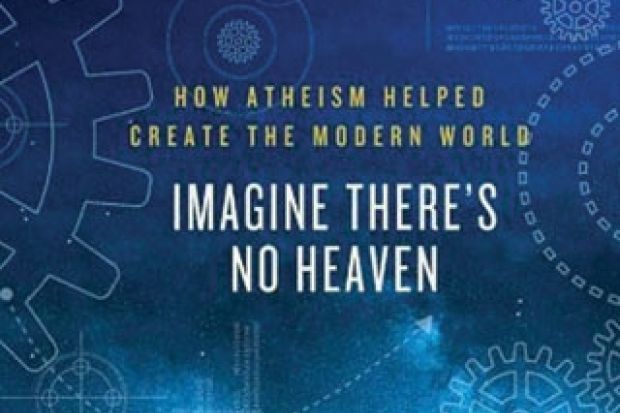Mitchell Stephens is a powerful and persuasive American evangelist; an evangelist for atheism, it is true, but no less an evangelist for that. He is an eloquent preacher of the way of salvation as he sees it, and his oft-repeated message is that atheism has historically created a virtuous circle of enlightenment. Atheism has brought deliverance from tyranny, intolerance, ignorance and bigotry, and many of the values we most treasure today – free enquiry, human dignity, equality and democracy – would scarcely have been conceivable without the invaluable contributions of atheistic thinkers, writers and activists stretching back through centuries of Western history. Stephens delves deeply into this history and constructs a narrative that shows the central importance of atheistic thought for human cultural achievement.
But although he is partisan, Stephens is by no means unfairly prejudiced. He avoids the caricature and ill-informed dismissals that have sometimes marred the work of other atheistic preachers. He concedes that religion too has sometimes been a force for human good, but he wants to give atheism a fair hearing and contends that its contribution to human flourishing has too often been ignored, downplayed or forgotten. The book’s later chapters guide us down well-trodden paths (Charles Bradlaugh, Albert Camus, Jean-Paul Sartre), but particularly fascinating are the earlier chapters in which Stephens unearths the contributions of lesser-known radicals and rebels from centuries long before the Enlightenment and the “age of atheism” – in the ancient world and in medieval and early modern Christendom. He has read deeply and widely and preaches his lively and readable message to persuasive effect.
This is, of course, a Whiggish narrative, a story of improvement and progress, and a transition from darkness to light. As Stephens puts it, “if religion supports oppression and injustice, a critique of religion is necessary to make way for democracy, equality, human rights”. It is thus clear that, for Stephens, this enlightenment is not only intellectual and scientific, but also political. He sees the transition from theism to atheism as presaging a shift from concern with a post-mortem hell to the “real hell” of people’s lives of poverty and deprivation. The coming of atheism has cleared the space for a proper political concern for social justice.
But there is another narrative of the relationship between the decline of religion and social justice. This is a story that tells of the coming of nihilism and the prevalence of relativism, of the end of ideology and thus of socialism, and the concomitant triumph of the free market. As the market becomes sovereign, the political space shrinks, whether expressed in terms of citizens’ apathy or impotence. As Terry Eagleton has pointed out, this has led many secular philosophers and theorists back to religion. Perhaps unexpectedly, they perceive Christianity to harbour potentially revolutionary resources in these “politically patchy times”. This is a very different narrative from that told by Stephens, but is perhaps not incompatible with it.
If the secular Enlightenment was indeed, as Stephens argues, necessary to rescue us from religion’s historical entanglement with slavery, racism and other associated oppressions, perhaps a return to religion (as even some atheists, including Slavoj Žižek, argue) is now necessary to rescue us from secularism’s incipient relativism and its resulting political impotence and cultural poverty. To argue thus would not necessarily entail the rejection of Stephens’ skilfully constructed history, but it would entail it being placed within a wider dialectical backdrop. So while there may be much truth in what Stephens says, it is perhaps not the whole truth.
Imagine There’s No Heaven: How Atheism Helped Create the Modern World
By Mitchell Stephens
Palgrave Macmillan, 336pp, £18.99
ISBN 9781137002600
Published 25 March 2014
Register to continue
Why register?
- Registration is free and only takes a moment
- Once registered, you can read 3 articles a month
- Sign up for our newsletter
Subscribe
Or subscribe for unlimited access to:
- Unlimited access to news, views, insights & reviews
- Digital editions
- Digital access to THE’s university and college rankings analysis
Already registered or a current subscriber? Login





